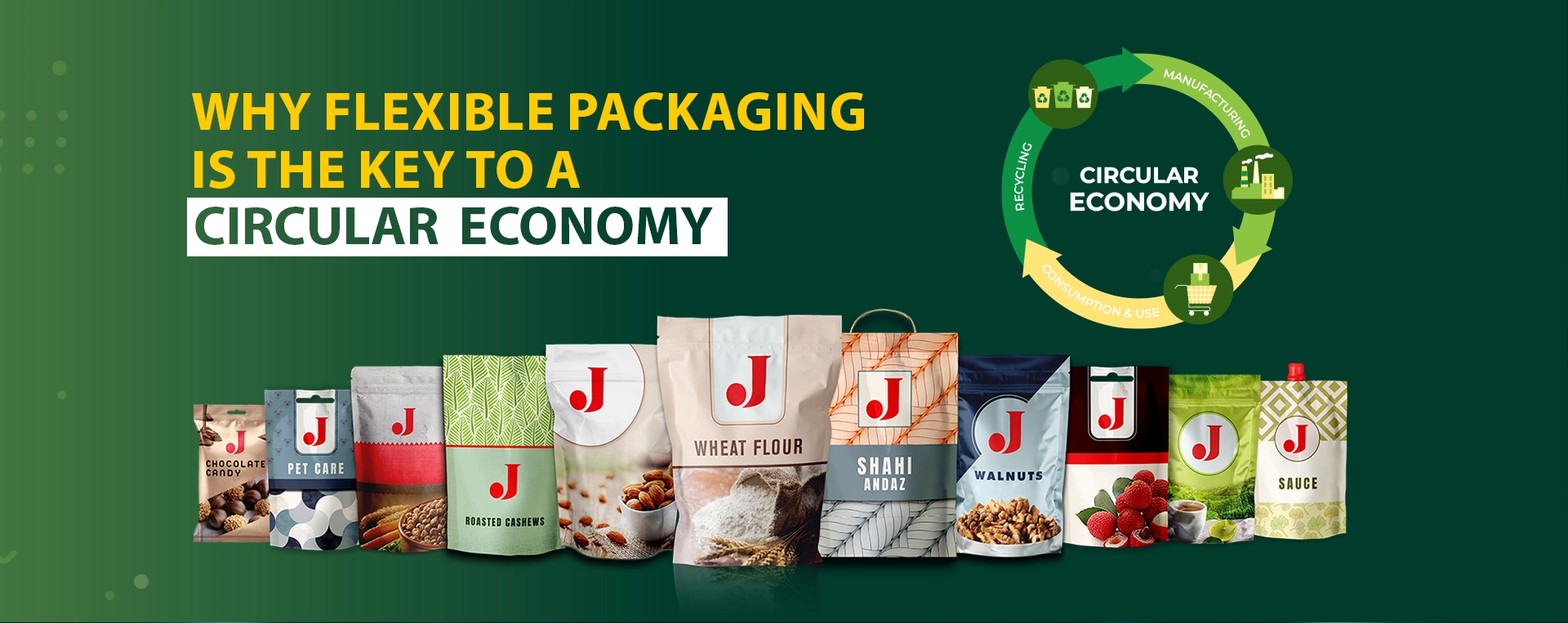The world is moving towards a circular economy where resources are reused, recycled and kept in use for as long as possible. In this approach, waste is minimized and materials get a second life instead of being thrown away. Packaging plays a major role in this shift and flexible packaging is proving to be one of the most effective solutions.
What is Flexible Packaging?
Flexible packaging refers to any packaging made from materials like plastic films, foils, or paper that can bend or change shape. Examples include pouches, bags, wraps and sachets. It is lightweight, versatile and designed to use fewer resources compared to rigid packaging such as bottles, cans or boxes.
Resource Efficiency
One of the biggest advantages of flexible packaging is that it uses less raw material. For instance, a pouch can carry the same amount of product as a rigid container but requires far less material and energy to produce. This reduction helps save resources and lowers the carbon footprint, making it a more sustainable choice.
Reducing Waste
Since flexible packaging is lightweight, it also cuts down transportation costs and emissions. More products can be shipped at once, which reduces fuel use and helps keep supply chains efficient. At the same time, flexible packaging often extends the shelf life of food, reducing food waste, another major step toward sustainability.
Recyclability and Innovation
In the past, recycling flexible packaging was a challenge because of the mix of materials used. However, new innovations are changing that. Mono-material packaging, for example, is designed to be easily recyclable. Some companies are also developing recycle-ready pouches and compostable films that fit into circular economy models. These solutions allow packaging to re-enter the system instead of becoming waste.
Supporting a Circular Economy
The goal of a circular economy is to design products that stay in use. Flexible packaging supports this by:
- Using fewer resources from the start
- Reducing waste during transportation and storage
- Enabling recycling through new technologies
- Lowering the overall environmental impact
When combined with proper collection and recycling systems, flexible packaging can play a big role in creating a closed loop where materials are reused again and again.
The journey to a circular economy requires innovation, responsibility and smart choices. Flexible packaging brings all these together by being efficient, lightweight and increasingly recyclable. As more companies and industries adopt sustainable packaging, flexible packaging will continue to drive change and help build a greener, circular future.
Choose Jupiter Laminators for one-stop flexible packaging solutions that combine innovation, quality and sustainability. From high-performance pouches to recycle-ready films, we deliver packaging that protects your product and the planet. Partner with us today to experience packaging excellence tailored to your needs.


